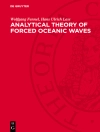Data assimilation (DA) has been recognized as one of the core techniques for modern forecasting in various earth science disciplines including meteorology, oceanography, and hydrology. Since early 1990s DA has been an important s- sion topic in many academic meetings organized by leading societies such as the American Meteorological Society, American Geophysical Union, European G- physical Union, World Meteorological Organization, etc. nd Recently, the 2 Annual Meeting of the Asia Oceania Geosciences Society (AOGS), held in Singapore in June 2005, conducted a session on DA under the – tle of “Data Assimilation for Atmospheric, Oceanic and Hydrologic Applications.” nd This rst DA session in the 2 AOGS was a great success with more than 30 papers presented and many great ideas exchanged among scientists from the three different disciplines. The scientists who participated in the meeting suggested making the DA session a biennial event. th Two years later, at the 4 AOGS Annual Meeting, Bangkok, Thailand, the DA session was of cially named “Sasaki Symposium on Data Assimilation for At- spheric, Oceanic and Hydrologic Applications, ” to honor Prof. Yoshi K. Sasaki of the University of Oklahoma for his life-long contributions to DA in geosciences.
Inhoudsopgave
Sasaki’s Pathway to Deterministic Data Assimilation.- Data Assimilation for Numerical Weather Prediction: A Review.- Theoretical and Practical Issues of Ensemble Data Assimilation in Weather and Climate.- Information Measures in Ensemble Data Assimilation.- Real Challenge of Data Assimilation for Tornadogenesis.- Radar Rainfall Estimates for Hydrologic and Landslide Modeling.- High-Resolution QPE System for Taiwan.- Assimilation of Satellite Data in Improving Numerical Simulation of Tropical Cyclones: Progress, Challenge and Development.- Diagnostics for Evaluating the Impact of Satellite Observations.- Impact of the CHAMP Occultation Data on the Rainfall Forecast.- Parameter Estimation Using the Genetic Algorithm in Terms of Quantitative Precipitation Forecast.- Applications of Conditional Nonlinear Optimal Perturbations to Ensemble Prediction and Adaptive Observation.- Study on Adjoint-Based Targeted Observation of Mesoscale Low on Meiyu Front.- Ocean Data Assimilation: A Coastal Application.- Comparison of Ensemble-Based Filters for a Simple Model of Ocean Thermohaline Circulation.- Preconditioning Representer-based Variational Data Assimilation Systems: Application to NAVDAS-AR.- Cycling the Representer Method with Nonlinear Models.- Implementation of the Ensemble Kalman Filter into a Northwest Pacific Ocean Circulation Model.- Particle Filtering in Data Assimilation and Its Application to Estimation of Boundary Condition of Tsunami Simulation Model.- Data Assimilation in Hydrology: Variational Approach.- Recent Advances in Land Data Assimilation at the NASA Global Modeling and Assimilation Office.- Assimilation of Soil Moisture and Temperature Data into Land Surface Models: A Survey.- Assimilation of a Satellite-Based Soil Moisture Product into a Two-Layer Water Balance Model for a Global Crop Production Decision Support System.
Over de auteur
Seon Ki Park is Professor of Environmental Science and Engineering and Director of the Severe Storm Research Center at the Ewha Womans University in Seoul, Korea. He obtained a Ph.D. in Meteorology from the University of Oklahoma, M.S. and B.S. in Meteorology from the Seoul National University, Korea. He had worked as a research scientist at University of Oklahoma, University of Maryland and NASA/Goddard Space Flight Center.
Liang Xu is a meteorologist at the Naval Research Laboratory in Monterey. He has a doctorate in meteorology (major) and oceanography (minor) from the NC State University, a master’s degree in atmospheric sciences from UC Davis, and a master’s degree in tropical meteorology from the Nanjing University, China.












